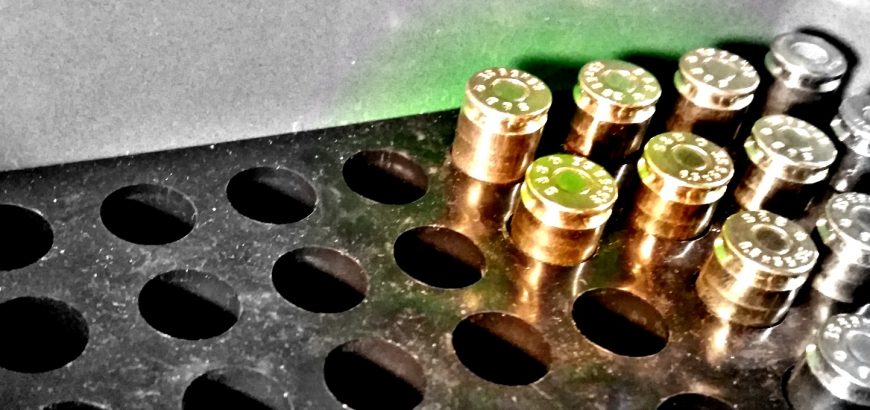Reloading is a great way to extend your enjoyment of shooting in New Zealand. In fact, for many it becomes a hobby in its own right. There are only a few items you need to start reloading, but there are many added extras that can enhance accuracy, ease of reloading, confidence and even the appearance of your completed rounds.
It may not even cross your mind, but a solid reloading bench is one of the most essential tools for your first foray to into producing your own ammunition.
Solid
First off – is your bench of solid construction? When reloading, you are reshaping the brass – especially with full length sizing dies, as opposed to neck-sizing dies. This can require a fair bit of force, and if your table is flimsy, it may bend a bit before you fully cam over and get the full effect of your sizing die. This can mean the shoulder won’t be bumped back quite enough, or the base of the round (before the extractor groove) will be slightly too large. This isn’t the end of the world, but it can make it hard to chamber your rounds, and can introduce inconsistency into your reloaded rounds. Inconsistency is the enemy of accuracy.
Level
Is your bench level? A solid chunk of wood supported on cinder blocks may be fine in terms of taking the pressure exerted in sizing a round, but if it’s not level, your powder scale could be off.
This is less of a problem with electronic scales, but as I covered in a previous article, it can affect mechanical scales such as the Lee Safety Powder Scale.
Height, light and storage
This is more about comfort and ease of operation than anything else, but it’s not hard to realise that good conditions lead to a quality product. If you’re sitting in the same spot for hours on end, you’re much more likely to produce something of value if your back isn’t aching and you can actually see what you’re doing.
Storage is a must, and investing in a storage solution like a bin rack is not a bad idea. Keeping your brass separated by number of firings is easier this way. You can also organise your products by calibre or even the specific rifle they’re for. Lockable storage is a good idea for powder and other dangerous components. Don’t forget to store powder, primers and completed rounds separately and in their appropriate and labelled containers.





